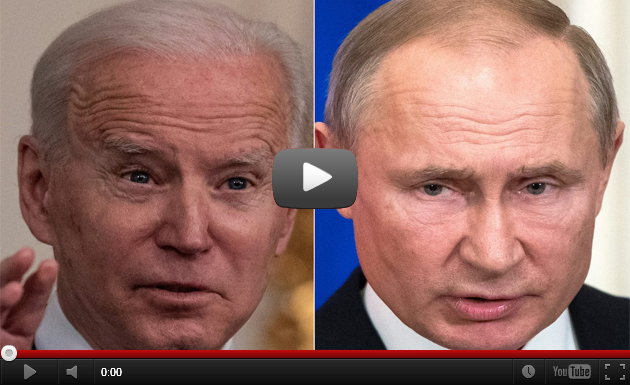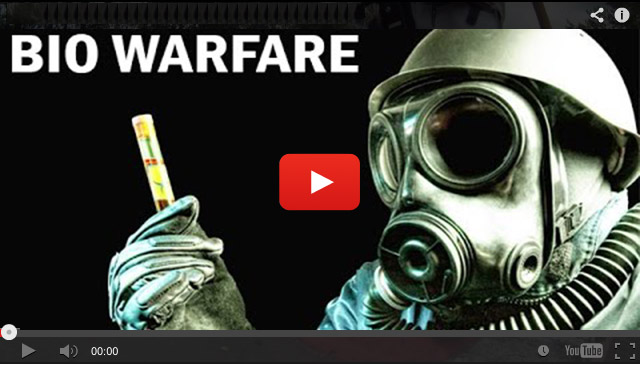Despite rebuffs from Western nations, Russia continued to accuse Ukraine of preparing to use a “dirty bomb” and said it would bring the matter to the U.N. Security Council on Tuesday.
Diplomats said Russia has told council counterparts it will bring up the issue during a closed-door meeting of the 15-member body.
Russia’s Ambassador to the United Nations Vasily Nebenzya sent a letter, seen by VOA, to U.N. Secretary-General Antonio Guterres and the Security Council late Monday, saying Russia “will regard the use of the dirty bomb by the Kiev regime as an act of nuclear terrorism.”
Ukraine has strongly denied Moscow’s allegations that it is planning to detonate a dirty bomb on its own territory and has in turn accused Russia of plotting to use the threat of a bomb laced with nuclear material as a pretext for escalation in Ukraine.
U.S. State Department spokesperson Ned Price warned Monday of the “profound nature of consequences” that would befall Russia if it used a dirty bomb or any other nuclear weapon.
NATO Secretary-General Jens Stoltenberg said Monday that NATO allies rejected Russia’s claims that Ukraine is preparing to use a dirty bomb on its own territory and added “Russia must not use it as a pretext for escalation.”

Russia demands UNSC probe into claims of Ukraine biological labs.
Associated Press, Russia argued that the move violated the UNSC convention which prohibits the use of biological weapons.
Ahead of a United Nations Security Council meeting called by Russia, it has sought the help of the council to set up a commission to investigate claims that the US and Ukraine are carrying out biological weapons activities in the laboratories to be used in the warzone.
According to draft resolution obtained by the Associated Press, Russia argued that the move violated the UNSC convention which prohibits the use of biological weapons.
Vasily Nebenzya, Russia’s permanent representative of Russia to the United Nations said apart from the resolution, Moscow was circulating some 300-page worth of material detailing the Ukraine-US collusion for developing biological weapons.
According to reports, Russia’s draft resolution will authorise the UNSC to set up a 15-member commission that will investigate the claims made. The panel is expected to submit its report to the council by November 30 and later in a review conference in Geneva, scheduled to take place from November 28-December 16.
Ever since the Russia-Ukraine war broke out in February earlier this year, Moscow has been claiming that the US, in cooperation with Ukraine is developing biological bombs. The claim was denied by both parties.
Notably, the development comes in the backdrop of Russia claiming that Ukraine is planning to detonate a dirty bomb. In recent telephonic conversations between Moscow and the West, the country’s Defence Minister Sergei Shoigu discussed Ukraine and informed about the supposed ‘dirty bomb’.
Shoigu “conveyed to his British colleague his concern about possible provocations by Ukraine with the use of a ‘dirty bomb’,” the ministry said in a statement.
The so-called “dirty bomb” is a conventional explosive device that is laced with toxic nuclear material. Instead of producing an atomic explosion that would level a whole city, dirty bombs are made to disperse poisonous waste.
As Russia has intensified its missile and drone attacks on Ukraine, international diplomats took to the UN Security Council to emphasize Russia’s departure from international norms.
Ahead of a United Nations Security Council meeting called by Russia, it has sought the help of the council to set up a commission to investigate claims that the US and Ukraine are carrying out biological weapons activities in the laboratories to be used in the warzone.
Biological Weapons Convention
Biological weapons disseminate disease-causing organisms or toxins to harm or kill humans, animals or plants. They can be deadly and highly contagious. Diseases caused by such weapons would not confine themselves to national borders and could spread rapidly around the world. The consequences of the deliberate release of biological agents or toxins by state or non-state actors could be dramatic. In addition to the tragic loss of lives, such events could cause food shortages, environmental catastrophes, devastating economic loss, and widespread illness, fear and mistrust among the public.
The Biological Weapons Convention
The Biological Weapons Convention (BWC) effectively prohibits the development, production, acquisition, transfer, stockpiling and use of biological and toxin weapons. It was the first multilateral disarmament treaty banning an entire category of weapons of mass destruction (WMD).
The BWC is a key element in the international community’s efforts to address WMD proliferation and it has established a strong norm against biological weapons. The Convention has reached almost universal membership with 184 States Parties and four Signatory States.
Formally known as “The Convention on the Prohibition of the Development, Production and Stockpiling of Bacteriological (Biological) and Toxin Weapons and on their Destruction”, the Convention was negotiated by the Conference of the Committee on Disarmament in Geneva, Switzerland. It opened for signature on 10 April 1972 and entered into force on 26 March 1975. The BWC supplements the 1925 Geneva Protocol, which had prohibited only the use of biological weapons.
States Parties to the Biological Weapons Convention undertook “never in any circumstances to develop, produce, stockpile or otherwise acquire or retain:
microbial or other biological agents, or toxins whatever their origin or method of production, of types and in quantities that have no justification for prophylactic, protective or other peaceful purposes;
weapons, equipment or means of delivery designed to use such agents or toxins for hostile purposes or in armed conflict.”
BWC States Parties have strived to ensure that the Convention remains relevant and effective, despite the changes in science and technology, politics and security since it entered into force. Throughout the intervening years, States Parties have met approximately every five years to review the operation of the BWC. Between these Review Conferences, States Parties have pursued various activities and initiatives to strengthen the effectiveness and improve the implementation of the Convention. A total of eight Review Conferences have taken place since the first one in 1980.

Books can be your best pre-collapse investment.
Carnivore’s Bible (is a wellknown meat processor providing custom meat processing services locally andacross the state of Montana and more. Whether your needs are for domestic meator wild game meat processing)
The Lost Book of Remedies PDF ( contains a series of medicinal andherbal recipes to make home made remedies from medicinal plants and herbs.Chromic diseases and maladies can be overcome by taking the remediesoutlined in this book. The writer claims that his grandfather was taughtherbalism and healing whilst in active service during world war twoand that he has treated many soldiers with his home made cures. )
Easy Cellar(Info about building and managing your root cellar, plus printable plans. The book on building and using root cellars – The Complete Root Cellar Book.)
The Lost Ways (Learn the long forgotten secrets that helped our forefathers survive famines,wars,economic crisis and anything else life threw at them)
LOST WAYS 2 ( Wordof the day: Prepare! And do it the old fashion way, like our fore-fathers did it and succeed longbefore us,because what lies ahead of us will require all the help we can get. Watch this video and learn the 3 skills that ensured our ancestors survival in hard times offamine and war.)


The U.S. has already been sending “dirty bombs” to Ukraine; to be used against Russians. So how is it a problem; or a “wrong”; for Russia to utilize the same in response?